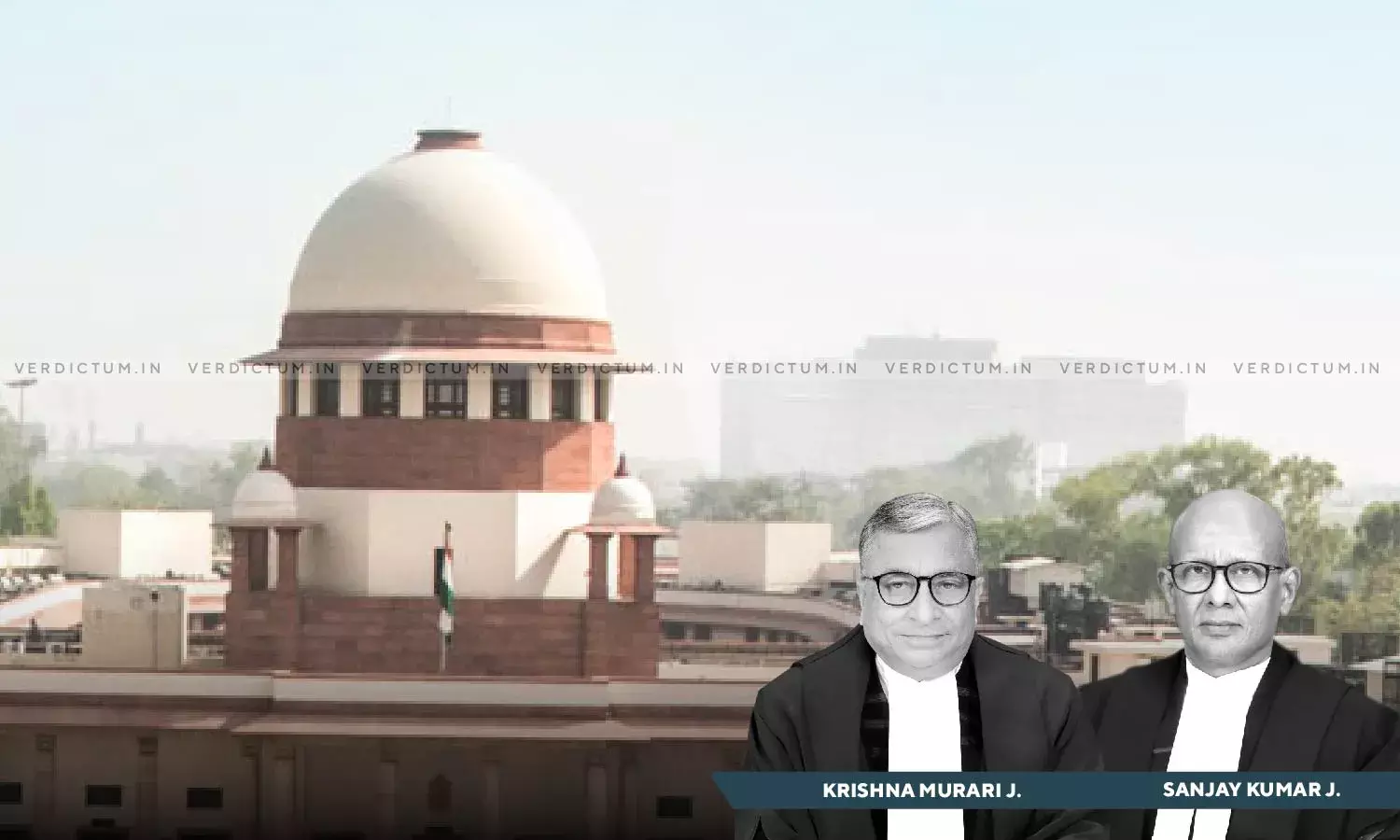When Company & Accused Are Two Separate Entities & There Is No Connection With Investigation, Freeze Order Is Invalid: SC
The Supreme Court while deciding an appeal has held that when the company and the accused are two separate entities and the company is not connected to the investigation, the freeze order in such a case is not valid.
The two-Judge Bench of Justice Krishna Murari and Justice Sanjay Kumar said, “Since the said Dharmesh Doshi was in no way connected to the appellant company herein, the trial faced by him, was in his individual capacity, and not vicariously on behalf of the appellant company. … In such a circumstance, wherein the appellant company and the accused Dharmesh Doshi are two separate entities, and the appellant company is in no way connected to the concerned Investigation, the operation of the freeze order against the appellant company, is not legally tenable.”
The Bench further said that since the company is not connected to the alleged crime, and has not found mention in the FIR or the chargesheet, the freeze order against the company’s properties is redundant qua the investigation, since the company itself is not necessary for the conclusion of the investigation.
Advocate Sunil Fernandes appeared for the appellant while ASGs K.M. Nataraj, Aishwarya Bhati, and Advocate Sharath Nambiar appeared for the respondents.
In this case, the appellant company was a Foreign Institutional Investor and was permitted by the SEBI to buy and sell shares and securities in the Indian Stock Market but due to certain litigations it quit trading in the Indian markets in 2006. Thereafter, the appellant company was subject to two freeze orders under Section 102 of Cr.PC. whereby the first freeze order was imposed in 2006 and the second one was imposed in 2010.
Such aforementioned freeze orders were levied against the appellant company on grounds of the necessity of investigation of an alleged crime and at this point, an investigation was initiated against one person who was in no way related to the company and was never an employee/shareholder/director/key managerial person in the company. The second freeze order incapacitated the company to repatriate an amount of Rs. 38.52 crores which was thereafter allowed by the Apex Court but the High Court then reiterated the imposition of the Bank Guarantee.
The Supreme Court in the above regard asserted, “… the appellant company herein, till date, has not been named in the FIR or the chargesheet in which the abovementioned Dharmesh Doshi is an accused. It must also be noted that Mr. Shailesh Madiyal, learned counsel appearing for the respondent CBI, on the basis of Instructions, made a statement before us in open Court stating that no criminal proceedings whatsoever are pending against the appellant company pertaining to the dispute at hand.”
The Court further noted that even if it is assumed that the accused’s discharge is subsequently reversed, and he is convicted, such a conviction would still have no bearing on the properties of the appellant company, since the company is not alleged to be a part of the crime.
“The purpose of the freeze order, and the bank guarantee in extension of the freeze order, can only be in operation to aid in the investigation against the alleged crime. Since the investigation against the appellant company, as has been discussed above, is redundant, hence, the freeze of the appellant company’s assets and the bank guarantee imposed in furtherance of the freeze order also becomes redundant”, observed the Court.
Accordingly, the Court allowed the appeal, set aside the condition imposed on the appellant, and permitted it to withdraw the amount with 4% simple interest.
Cause Title- M/s. Jermyn Capital LLC Dubai v. Central Bureau of Investigation & Ors.




